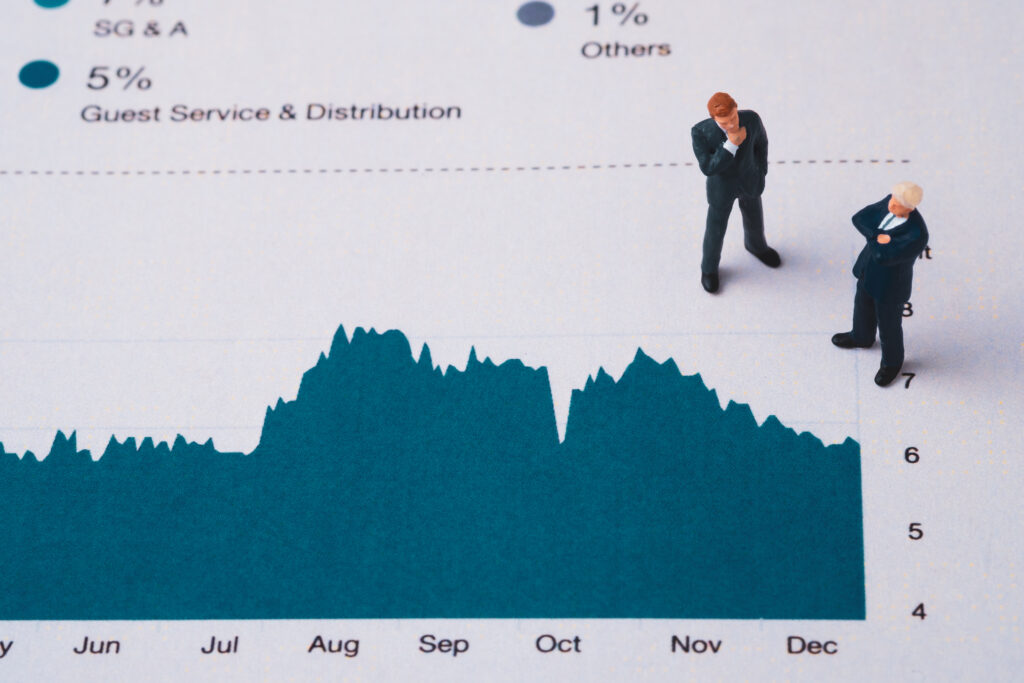In the fast-paced and unpredictable world of financial markets, volatility is an ever-present factor that can significantly impact investment portfolios. Market volatility, characterized by sharp price fluctuations and increased uncertainty, can pose risks to investors. However, hedging strategies provide a powerful tool to mitigate these risks and protect investments during turbulent market conditions. In this blog post, we will explore some of the best instruments for hedging during market volatility, helping investors navigate challenging market environments with more confidence and resilience.
Market volatility can arise from various factors, such as economic events, geopolitical tensions, or unexpected market shocks. While it is impossible to predict or control market movements, hedging strategies aim to reduce the impact of adverse price movements on portfolios. By employing hedging techniques, investors can protect their investments from downside risks while still maintaining exposure to potential market gains.
1. Options Contracts

Options contracts provide an effective hedging tool for managing market volatility. A put option gives the holder the right to sell an underlying asset at a predetermined price (strike price) within a specified period. By purchasing put options on individual stocks or stock market indices, investors can protect against potential price declines. In the event of a market downturn, the put options can offset the losses incurred by the underlying assets in the portfolio.
2. Futures Contracts

Futures contracts offer another popular hedging instrument during market volatility. These standardized agreements obligate buyers and sellers to transact an underlying asset at a predetermined price and future date. By selling futures contracts, investors can hedge against potential price declines in their existing portfolio holdings. If the market experiences a downturn, the gains from the short futures positions can help offset the losses incurred by the underlying assets.
3. Exchange-traded funds (ETFs)

ETFs are investment funds that trade on stock exchanges and aim to replicate the performance of a specific index or sector. During times of market volatility, investors can consider using inverse or short ETFs to hedge against potential declines. These ETFs are designed to generate returns that are inversely correlated to the performance of the underlying index or sector. Therefore, if the market experiences a downturn, inverse or short ETFs can provide gains to help offset losses in the portfolio.
4. Gold and Precious Metals

Gold and other precious metals have historically been considered safe-haven assets during periods of market volatility. When stock markets experience turmoil, investors often flock to these assets as a store of value. The price of gold and other precious metals tends to rise during times of uncertainty, providing a natural hedge against market volatility. Including a portion of gold or precious metals in a diversified portfolio can help mitigate losses during turbulent market conditions.
5. Volatility Index (VIX) Futures

The Volatility Index (VIX), often referred to as the “fear index,” measures market expectations of future volatility. VIX futures allow investors to hedge against market volatility directly. By taking long positions in VIX futures contracts, investors can profit from rising volatility during market downturns. These futures contracts provide a way to protect against potential losses in the portfolio caused by increased market turbulence.
Conclusion
As market volatility continues to be a significant factor impacting investment portfolios, it becomes imperative for investors to employ effective hedging strategies. PFH Markets, a reputable brokerage, provides investors with access to a range of financial instruments and sophisticated trading technology to implement hedging strategies effectively. With competitive trading conditions, reliable trade execution, and exceptional customer support, PFH Markets can be a valuable partner in navigating market volatility.
Remember that while hedging strategies can mitigate risks during volatility, they also involve additional costs and potential trade-offs. It is essential to carefully assess your risk tolerance, investment objectives, and the specific characteristics of each hedging instrument before incorporating them into your portfolio. Seeking professional advice and continuously monitoring market conditions will further enhance the effectiveness of your hedging strategies.
By utilizing the best instruments for hedging during market volatility, investors can strive for a more balanced and resilient portfolio. Whether through options contracts, futures contracts, ETFs, precious metals, or VIX futures, these instruments offer valuable tools to protect against downside risks. Through diligent research, risk assessment, and the support of a reliable brokerage like PFH Markets, investors can navigate market volatility with greater confidence and potentially achieve their investment objectives.





